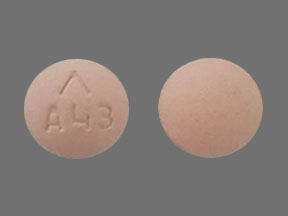
Desvenlafaxine Succinate ER Coupons & Savings Card – Discount Prices from $18.01
Generic for: Pristiq
My prescription
Edit
100MG, Desvenlafaxine Succinate ER (30 Tablet Extended Release 24 Hours)
Select pharmacy

CVS
$24.02
COUPON PRICE
Walmart
$18.01
COUPON PRICE
Walgreens
$21.84
COUPON PRICE
Albertsons
$28.35
COUPON PRICEDesvenlafaxine Succinate ER savings card
Show this card to your pharmacist
Walmart
$18.01
BIN
ID
PCN
GRP
019876
LHA4AB6D29
CHIPPO
LHX
Powered by
More prescriptions for depression
More prescriptions for depression
Price history for Pristiq (brand) & Desvenlafaxine Succinate ER (generic)
30 Tablet Extended Release 24 Hours, 100MG
Average retail price for Pristiq
Average retail price for Desvenlafaxine Succinate ER
Average SaveHealth price for Desvenlafaxine Succinate ER
Our price history data is based on aggregated prescription data collected from participating pharmacies in America. Our prescription data updates daily to reflect the latest price changes. If you notice a missing data point, it means there wasn't sufficient data available to generate a monetary value for that date.
We analyzed Desvenlafaxine Succinate ER prices for (100MG, 30 Tablet Extended Release 24 Hours) over the last 12 months. The average retail price was $215.84, while the average price using the SaveHealth discount card was $23.32. That's a savings of approximately 89.20% when using our Desvenlafaxine Succinate ER coupon.
Compared to the generic version, Pristiq had an average price of $514.20 over the same time period. With the SaveHealth savings card, Desvenlafaxine Succinate ER is 95.46% cheaper on average than Pristiq.
*Retail prices are based on pharmacy claims data, and may not be accurate when we don't have enough claims.
Desvenlafaxine Succinate ER dosage forms
Dosage Quantity Price from Per unit 25MG 30 Tablet Extended Release 24 Hours $18.08 $0.60 25MG 60 Tablet Extended Release 24 Hours $27.89 $0.47 25MG 90 Tablet Extended Release 24 Hours $40.68 $0.45 50MG 1 Tablet Extended Release 24 Hour $3.01 $3.01 50MG 28 Tablet Extended Release 24 Hours $16.83 $0.60 50MG 30 Tablet Extended Release 24 Hours $17.85 $0.59 50MG 60 Tablet Extended Release 24 Hours $29.75 $0.50 50MG 90 Tablet Extended Release 24 Hours $43.47 $0.48 50MG 100 Tablet Extended Release 24 Hours $45.38 $0.45 50MG 500 Tablet Extended Release 24 Hours $121.70 $0.24
| Dosage | Quantity | Price from | Per unit |
|---|---|---|---|
| 25MG | 30 Tablet Extended Release 24 Hours | $18.08 | $0.60 |
| 25MG | 60 Tablet Extended Release 24 Hours | $27.89 | $0.47 |
| 25MG | 90 Tablet Extended Release 24 Hours | $40.68 | $0.45 |
| 50MG | 1 Tablet Extended Release 24 Hour | $3.01 | $3.01 |
| 50MG | 28 Tablet Extended Release 24 Hours | $16.83 | $0.60 |
| 50MG | 30 Tablet Extended Release 24 Hours | $17.85 | $0.59 |
| 50MG | 60 Tablet Extended Release 24 Hours | $29.75 | $0.50 |
| 50MG | 90 Tablet Extended Release 24 Hours | $43.47 | $0.48 |
| 50MG | 100 Tablet Extended Release 24 Hours | $45.38 | $0.45 |
| 50MG | 500 Tablet Extended Release 24 Hours | $121.70 | $0.24 |
| 50MG | 1000 Tablet Extended Release 24 Hours | $217.10 | $0.22 |
| 100MG | 30 Tablet Extended Release 24 Hours | $18.01 | $0.60 |
| 100MG | 60 Tablet Extended Release 24 Hours | $29.75 | $0.50 |
| 100MG | 90 Tablet Extended Release 24 Hours | $43.47 | $0.48 |
| 100MG | 100 Tablet Extended Release 24 Hours | $45.38 | $0.45 |
| 100MG | 1000 Tablet Extended Release 24 Hours | $217.10 | $0.22 |
